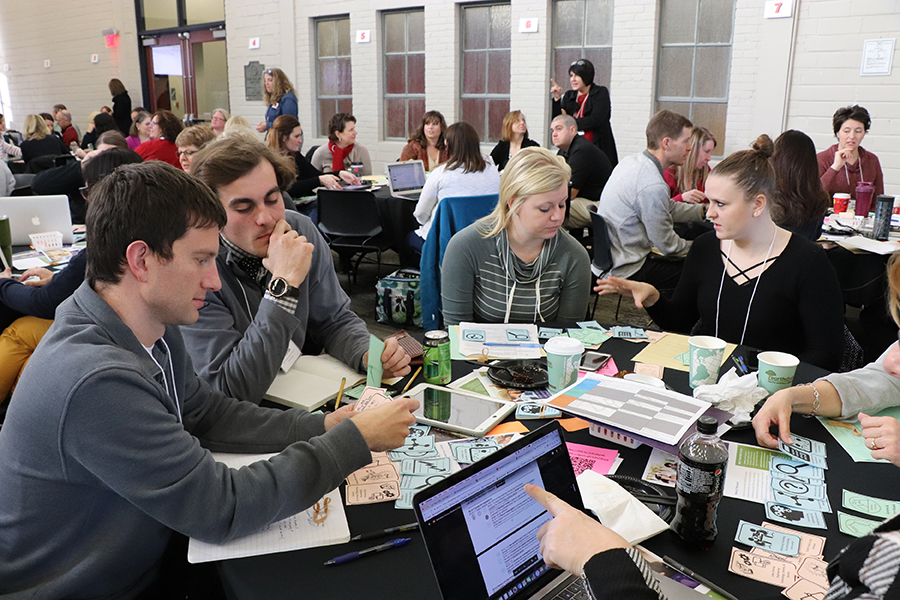
Nearly 250 people attended the 2nd annual statewide Nebraska K-12 Science Education Summit on Dec. 11, 2017, at Nebraska Innovation Campus in Lincoln. The summit gave participants the opportunity to get an update on Nebraska’s new College- and Career-Ready Standards; explore 3-dimensional learning, phenomena, and integrated science; learn about innovative K-12 science curriculum, resources, and programs developed by university faculty; and engage with science education stakeholders from across Nebraska.
More than 150 K-12 teachers attended and were joined by Nebraska Department of Education officials; school district science directors; ESU science staff developers; and University of Nebraska-Lincoln faculty, staff, and graduate students.
Cory Forbes, associate professor of science education and the coordinator of the IANR Science Literacy Initiative at Nebraska, led the event along with Sara Cooper, the science education specialist at NDE. Cooper presented a workshop on moving from 1-dimensional standards to college- and career-ready standards. Participants engaged in discussions of how students can and should use multiple cross-cutting concepts and practices to engage in figuring out phenomena related to any disciplinary core ideas.
During lunch, Philip Bell, professor of learning sciences and human development at the University of Washington, discussed equitable 3D learning in science for all students. His breakout session in the afternoon delved further into the work his team at the UW Institute for Science + Math Education is doing with teachers and researchers to create a suite of accessible, bite-sized practice briefs called STEM Teaching Tools: http://stemteachingtools.org/.
Breakout sessions in the morning and afternoon featured 34 presentations from the NU system, K-12 teachers, and science education stakeholders. Christine Cutucache from the University of Nebraska at Omaha provided a summative presentation on the importance of “coalescing” your stakeholders to get feedback and meet all of the needs in the STEM education pipeline. To see the presentations’ abstracts, visit https://nebsciedsummit2017.sched.com.
Summit leaders thank the following sponsors: Center for Science, Mathematics, and Computer Education; IANR Science Literacy; NebraskaSCIENCE; Nebraska 4-H; and the Nebraska Collaborative for Food, Energy, & Water Education; as well as Summit partner the Nebraska Department of Education.